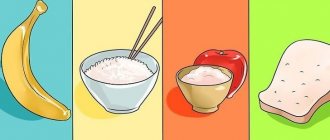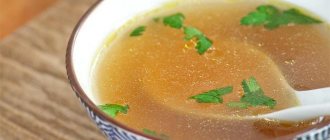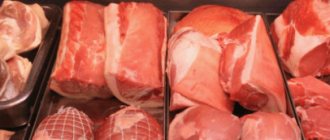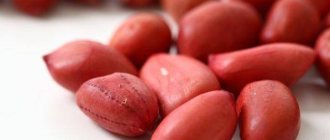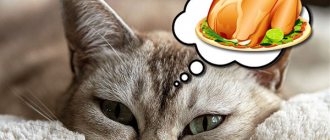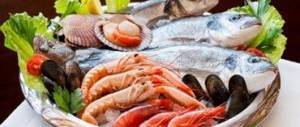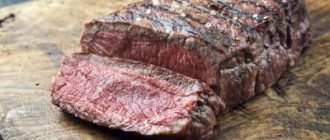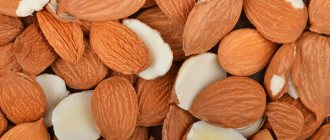Alcohol poisoning always causes a lot of trouble for a person. The symptoms are very similar to food poisoning; there is general intoxication, headache, nausea and vomiting . If you follow a gentle diet after the acute signs of the disease have subsided, you can help the body recover faster. Nutrition after alcohol poisoning should be balanced; you should use only natural products that contain many useful substances.
Diet
The most important condition of the diet is to limit the stress on the body. Food should be light and taken in small portions.
9 general recommendations for poisoning:
- Food should be at room temperature.
- Meals should not be less than 5 per day.
- Porridge with water is useful because it adsorbs toxins.
- And one more principle is the categorical exclusion of alcoholic beverages of any kind.
- All food should be stewed, boiled or baked. The best option is steaming.
- After poisoning, yeast baking is not recommended, as it causes fermentation in the intestines.
- The diet needs to be varied, the content of proteins and carbohydrates increased, but fats should be less than normal.
- A prerequisite is a water regime: at least 2.5-3 liters per day. The liquid removes toxins and facilitates liver function.
- The body also needs vitamins and microelements: baked and boiled vegetables and fruits are allowed without restrictions.
What to pay attention to
There are several tips that will help you quickly recover from alcohol poisoning and return to a normal diet:
- All human food after poisoning should be stewed, boiled or baked . Steaming of dishes is also allowed.
- Nutrition needs to be balanced. Foods should have enough proteins and carbohydrates, but little fat.
- All food offered to the patient must be warm. You should not give cold food, which is difficult to digest, or hot food, which can cause a stomach burn.
- You should not eat yeast baked goods for at least a week after alcohol poisoning. Such dishes promote fermentation and gas formation, which is very undesirable during the recovery period.
Signs of alcohol poisoning are very unpleasant and can bother a person for several days. A diet will help you recover quickly. The main rule of such nutrition is to eat light food in small portions, but often . Even if the diet does not bring adequate relief for several days, then a doctor’s consultation is necessary.
source
What can you eat after alcohol intoxication?
After alcohol poisoning, it is permissible to consume:
- Bananas are sources of potassium. Ideal for nausea and vomiting.
- Oatmeal – rich in magnesium, neutralizes toxins, helps liver function.
- Oil is introduced into the diet with caution . It can be added to a minimum in ready-made dishes.
- An important element of recovery is water and other liquids ; they are drunk in small portions, but often.
- Chicken broth - normalizes sodium balance and protects against dehydration. The rich broth can be consumed as a light afternoon snack or dinner.
- Eggs for breakfast - they contain taurine and cysteine. The first component protects the liver, and the second accelerates the breakdown of alcohol. Cook only as a steam omelette or hard-boiled.
- Rice grains are a good adsorbent , absorbing toxins from the large intestine. Rice porridge with water and a little salt is good for breakfast.
10 allowed drinks:
- Weak green teas, you can add a little honey to them. Black tea can also be slightly sweetened.
- Still water – alkaline water is ideal. If desired, you can add a little lemon juice.
- Rice water, raisin and dried apricot water + some rice. These drinks have an anti-inflammatory effect.
- Fruit juice, berry or fruit compote is a source of vitamins and antioxidants. If this is a dried fruit compote, then prunes should not be added to it, since they are smoked and are not recommended for a weak stomach.
- Kissel from cranberries, cherries, black currants - mucus will help restore the mucous membrane faster.
- Apple cider vinegar diluted with water will help restore the alkaline balance. To dilute, stir 1 dessert spoon with honey in a glass of water.
- Freshly squeezed juices remove toxins. Citrus fruits are better; among vegetables, tomato juice is recommended due to its lycopene content.
- In the absence of diarrhea, kefir, fermented baked milk or bio-yogurt are allowed.
- For persistent diarrhea, decoctions of herbs will help: blueberries, chamomile, rose hips, mint, St. John's wort, black currant. They relieve inflammation and act bactericidal and have an astringent effect.
- Pumpkin juice helps with vomiting.
What drinks are suitable during the period of poisoning?
When recovering from alcohol intoxication, drink at least 2.5 liters of liquid per day.
Suitable for this:
- Mineral water. Preference should be given to hydrocarbonate (alkaline) waters. For example, Borjomi, Essentuki, Luzhanskaya. You can add a little lemon juice to it. The gas needs to be released as much as possible.
- Weak green tea. Accelerates the removal of toxins from the body.
- Herbal teas, rose hips, fruit drinks, compotes, jelly. They contain a large amount of vitamins, minerals and antioxidants necessary for recovery from alcohol poisoning.
- Water with apple cider vinegar added. An excellent remedy for balancing the acid balance in the body. To do this, add 1 tablespoon of apple cider vinegar, a little honey and ginger to a glass of water.
- Freshies. Fresh fruit and vegetable juices help eliminate toxins from the body, restoring water and salt balance. Homemade tomato juice is especially useful: thanks to the high lycopene content in tomatoes, the symptoms of alcohol poisoning will subside faster.
Provided there is no diarrhea, fermented milk products are introduced into the diet: kefir, fermented baked milk, yogurt without sugar and fillers.
If everything is clear with what you can eat during the period of alcohol poisoning: you need to strictly follow a diet, eat well and eat only healthy and light food, but with drinking drinks everything is not so simple. There are a number of recommendations that will help minimize the negative effects of alcohol during the period of poisoning:
- Large amount of water. It is she who participates in the process of membrane exchanges.
- Minerals. Since the process of absorption of minerals in case of poisoning is slowed down, still mineral water is best suited.
- Liquids, like food, should be taken in small portions to ensure maximum absorption. This will help avoid swelling, discomfort, and vomiting in case of a severe condition.
- You can drink citrus juices, rosehip decoctions, dried fruit compote and green tea.
- In case of poisoning, milk should be drunk in moderation, as it puts a lot of stress on the pancreas. The tryptophan it contains enhances the absorption of poisons and can aggravate the patient's condition. On the other hand, when consumed in moderation, milk coats the walls of the stomach and has an adsorbing effect.
The body can also tell you what you can safely eat after alcohol poisoning. During such periods, a person may develop an aversion to certain foods. This means that the body perceives them as an aggravating factor and should not be consumed yet.
Forbidden food
In case of alcohol poisoning, products that cause gas formation, fermentation and irritate the mucous membrane of the digestive tract are prohibited.
These include fresh fruits and vegetables, which contain large amounts of fiber. They can weaken, so they are allowed for 3-4 days. For the same reason, pearl barley and barley porridge are excluded. They can be included in the diet only for 4-5 days.
Excluded:
- coffee;
- cocoa;
- strong tea;
- sparkling mineral water;
- Store-bought juices contain a lot of sugar and concentrates.
Mayonnaise and ketchup, spices, vinegar and marinades are also prohibited. For dressing, you can use a little low-fat sour cream.
What is strictly forbidden
There are foods that are not recommended to be consumed after alcohol intoxication, during the process of restoring the body.
List of foods that cause increased gas formation and inflammation of the esophagus:
- fresh vegetables and fruits, without heat treatment. It is allowed to eat such products, but only after 4 days from the moment of poisoning. Vegetables and fruits should only be eaten baked, then they will saturate the body with useful substances;
- fried and smoked foods inhibit digestion and can lead to indigestion due to alcohol poisoning;
- you can eat porridge. The exception is pearl barley and barley, because they contain a large amount of fiber. As a result, the gastric mucosa will receive a new portion of inflammation;
- sausages and canned products are also prohibited;
- You should not eat legumes, otherwise severe flatulence cannot be avoided;
- Flour products also cause increased gas formation, especially with the addition of yeast. If you really want sweet buns, then they are replaced with honey;
- fresh milk also causes flatulence during the recovery process from alcohol poisoning. Fermented milk products should be eaten after the condition improves in order to restore the intestinal microflora;
- Chicken eggs are only allowed to be consumed as an omelet.
The following drinks should be excluded from drinking:
- coffee;
- strong brewed tea. A large amount of caffeine will worsen your health and cause increased heart rate and nausea;
- store-bought juices containing large amounts of sugar and concentrates;
- mineral water with gases. It is recommended to drink mineral water only after gases have passed;
- any carbonated drinks;
- cocoa.
During the restoration of body functions and cleansing the blood of toxic substances, it is necessary to completely abandon alcohol-containing drinks.
Sample menu
1 day
Experts advise not to eat at all for the first day - this is an ideal option. Only water mode is recommended, without gas and sugar. Those who cannot stand this are advised to take a fasting break for at least 12 hours. Therapeutic fasting is beneficial for the body. A person needs to be dehydrated intensively to prevent dehydration. In addition, during this time the stomach and liver will be able to recover and rest, and the body will have more strength to eliminate toxins. For dinner, mashed potatoes with water and without oil are acceptable. New products must be introduced gradually.
Day 2
Starting from the second day, include foods high in vitamins and minerals , but the load on the stomach should remain minimal. Suitable: mashed potatoes without oil in water, jelly and compotes, steamed fish cutlet. Recommended products: homemade crackers, rye bread, biscuits, boiled or baked fruits and vegetables, pureed, ripe bananas without green areas. Buckwheat is allowed from cereals.
Day 3
A slight variety is gradually being introduced into the menu : you can make a casserole from cottage cheese, but without butter and sour cream, hard-boiled eggs, 2-3 lean meatballs with broth for dinner. You can drink broth, preferably vegetable broth. You can also include: stewed or steamed liver, non-viscous rice porridge with water, salads without dressing (you can add sour cream or vegetable oil, preferably olive). You can switch to your usual diet only 2 weeks after poisoning.
4 day
The diet is already more varied. It is better to start the day with porridge - oatmeal or semolina with water and compote. Baked apples with jam or honey are also suitable. For lunch, you can make chicken soup with well-cooked meat, a small amount of potatoes and carrots. Steamed fish cutlets are suitable for the second course. For an afternoon snack you can have homemade jelly or fruit. Dinner – a couple of eggs and dried fruit compote. Immediately before bed – chamomile tea and crackers.
5 day
If there are no unpleasant symptoms, the menu confidently expands from permitted products. The taboo on prohibited items remains in effect. At the slightest disturbance in the form of diarrhea and vomiting, the diet continues.
Useful video
We invite you to watch a video on how to get rid of alcohol intoxication and hangover:
Alcohol intoxication greatly depletes the body, so you can only support it with light foods. Food should be as simple as possible, without the use of seasonings and spices. A proper diet will contribute to recovery within 2-3 days after symptoms of intoxication appear. Only such an attitude towards your diet will minimize the negative consequences of drinking alcohol.
Taking a large amount of strong drinks will certainly lead to intoxication of the body. Proper nutrition after alcohol poisoning is one of the ways to quickly recover.
What is recommended to drink and eat, what food should you temporarily avoid? Is it possible to have a hangover? How long you need to stick to the diet - the advice of doctors is described in the article.
Do you still think that it is impossible to cure alcoholism?
Judging by the fact that you are now reading these lines, victory in the fight against alcoholism is not yet on your side.
Have you already thought about getting coded? This is understandable, because alcoholism is a dangerous disease that leads to serious consequences: cirrhosis or even death. Liver pain, hangover, problems with health, work, personal life. All these problems are familiar to you firsthand.
But maybe there is still a way to get rid of the torment? We recommend reading Elena Malysheva’s article about modern methods of treating alcoholism. Read more >>
Alcohol intoxication
Alcohol is poison, regardless of whether you drink expensive cognac or cheap wine.
Ethyl alcohol decomposes in the liver to toxic aldehydes, which break down into carboxylic acids. As a result of the reactions, a toxic compound is formed - acetaldehyde. By combining with the cells of the body, it leads to the creation of alkaloids. They are the ones who have narcotic properties.
The cause of alcohol poisoning lies not only in the large amount of alcohol consumed. Drinks often contain other impurities, such as fusel oils. The degree of intoxication also depends on the gender, age of the person and the speed of drinking; from how much food was eaten to how much was drunk.
After a large, stormy feast, symptoms of alcohol poisoning often occur:
- headache;
- incoherent speech;
- nausea;
- repeated vomiting;
- heart pain, arrhythmia;
- dizziness;
- confusion;
- impaired coordination of movements;
- decreased breathing;
- convulsions;
- increase or decrease in blood pressure;
- loss of consciousness;
- in severe cases, coma occurs.
In case of poisoning, all organs of the digestive system are affected, but the liver experiences the main load. Penetrating from the stomach into the blood, alcohol and decomposition products reach the brain, causing swelling. This increases intracranial pressure, which causes headaches.
The day after drinking, the body experiences a deficiency of vital electrolytes and a lack of 1.5 liters of fluid. For this reason, after poisoning, one is irresistibly drawn to brine and sauerkraut, which contain the necessary minerals. To help the liver rid itself of toxins, it is necessary to follow a proper diet after alcohol poisoning.
What determines the permissible dose of alcohol?
Each person has their own permissible dose. It depends on factors such as:
- Health status. The presence or absence of diseases of the liver and digestive system is especially important;
- Body mass. The smaller it is, the lower the body’s sensitivity threshold to toxins;
- Snack quality. Without a good snack, it is easier to get alcohol poisoning;
- Heredity. One person can drink alcohol, like milk, as much as he wants, and not even get drunk. He inherited his tolerance for alcohol from his ancestors. And the other, on the contrary, cannot tolerate even 1 glass of alcohol, like his father.
How does diet help after alcohol poisoning?
Even if you had to resort to medical help in the toxicology department, you should stick to proper nutrition at home. It will allow you to return to normal after poisoning in a few days:
- Complex foods slow down the elimination of toxins. The diet should consist of food that is gentle on the stomach - stewed, boiled or steamed dishes.
- Do not eat too hot or cold food, which irritates the mucous membrane of the esophagus and stomach. Warm and semi-liquid dishes are suitable.
- Excluding fatty, smoked foods from the menu will help liver cells destroy toxins faster.
- To ease the work of the stomach, in case of alcohol poisoning, you should eat 5-6 times throughout the day, but in small portions. You should not overeat so as not to provoke vomiting.
- To restore acid-base balance, a balanced diet is necessary. It is advisable to diversify the menu with protein and carbohydrate foods.
- Freshly squeezed juices and dried fruit compotes are good at restoring electrolyte balance after poisoning. These foods help the liver produce enzymes to detoxify toxins.
The main condition for successful dietary treatment after poisoning is a ban on drinking alcohol . People who are independent of alcohol feel aversion to it in the morning, not a craving.
Diet features
There is a persistent stereotype that it is better not to eat anything on the first day after severe alcohol poisoning.
But it is during this period that it is important to eat well in order to maximally support the body. If your health allows you to eat, you don’t need to starve in the hope that this will help you recover faster. It is better to eat a little, but more often, so as not to provoke vomiting. Meals are divided into 5 times or more. Food is boiled, steamed or stewed. Be sure to drink plenty of fluids to restore the balance of electrolytes in the body and speed up the removal of toxins from the blood.
What can you eat after alcohol intoxication?
Drinking large amounts of mineral or pure bottled water in small portions helps speed up the detoxification of the body after alcohol poisoning. Drinking plenty of fluids restores water balance.
The morning after a feast with alcohol poisoning, it is not recommended to eat any food. You are allowed to drink sweet tea with crackers. Food is replaced by liquids - compotes, jelly, green tea, St. John's wort decoction, berry fruit drinks.
- Start the morning of the second day with a light breakfast of rice water or porridge with water. Chicken broth is enough for lunch. Drink dogwood jelly or rosehip decoction. For dinner, limit yourself to buckwheat porridge.
- The diet for breakfast on the third day includes boiled chicken breast minced in a meat grinder. For lunch, make meatball soup. For dinner, boil fish and eat with stewed vegetables.
After poisoning, create a menu of a variety of first and second courses.
First courses consisting of a minimum of ingredients are allowed:
- chicken broth with vegetables - fresh cabbage, carrots, potatoes;
- soup made with lean ground beef without frying;
- decoction of lean meat;
- chicken broth seasoned with fresh herbs.
Simple soups are easily digested by an irritated stomach and restore energy after poisoning.
Second courses
From the second day, as your condition improves, you can expand the menu. It is very useful to eat rice dishes after alcohol poisoning. Cereals are an effective sorbent. Fiber removes alcohol toxins and accumulated gases, eliminates indigestion. Recommended main courses:
- rice porridge cooked in water;
- potato or vegetable puree;
- boiled or steamed chicken breast, veal, seafood;
- oatmeal, buckwheat porridge;
- stewed liver with vegetables;
- vegetable puree from zucchini, cauliflower;
- oven-baked fruits;
- steam cutlets, steamed or grilled.
You can add vegetable salads with boiled fish or meat to second courses. After alcohol poisoning, bananas are perfect for dessert . This product, rich in potassium, will compensate for the deficiency of microelements in the body poisoned by alcohol.
What can you drink if you have alcohol intoxication?
Ethyl alcohol poisoning leads to loss of vitamins, minerals and severe dehydration.
Drinking a large amount of water at once will cause vomiting.
After gastric lavage in case of alcohol poisoning, it is useful to take liquids:
- Mineral waters effectively restore the water-electrolyte balance: Smirnovskaya, Narzan. They not only quench thirst, but also supply lost microelements to the body.
- In case of poisoning, you should take enterosorbents that absorb alcohol - Enterosgel, Smecta, Filtrum or a suspension in water of 6-8 crushed tablets of activated carbon. Polysorb MP relieves intoxication well. Take sorbents for a week or until signs of poisoning completely disappear.
- Mint tea and a strong rosehip decoction relieve nausea.
- To speed up the restoration of water and electrolyte balance, in addition to food liquids, you need to take pharmaceutical powders: Regidron, Oralit, Glucosolan. They dissolve in cooled boiled water and are taken by adults 50 ml after each episode of vomiting or diarrhea.
- A lemon drink with natural juice will restore immunity. Ascorbic acid is a strong antioxidant. As an alternative to lemon, take 200 mg of vitamin C (tablets or tablets).
- Homemade bread kvass quenches your thirst.
- Freshly squeezed citrus juices diluted with half and half water are useful.
- It is very useful to drink dried fruit compote. It contains electrolytes (magnesium, potassium) and vitamin C. Compote helps normalize the ionic composition of the blood.
- It is beneficial to consume green tea, known for its antioxidant and bactericidal properties. For diarrhea, it will have an astringent effect.
- Infusions of medicinal herbs are recommended - St. John's wort, rose hips.
- Indigestion is eliminated by decoctions of bird cherry and blueberry; dogwood and currant jelly.
- Fermented milk products - kefir, unsweetened yogurts - perfectly restore the intestinal microflora.
Allowed food and drink
Answering the question of what you can eat after alcohol poisoning, it is worth noting that on the first day after drinking too much alcohol, moderate nutrition is recommended. If you feel nauseous, the amount of food you eat should be minimal. The most important thing you need right now is to drink plenty of fluids. Significant dehydration of the body is promoted not only by drinking alcohol, but also by vomiting. It is imperative to take measures to stop vomiting (washing and antiemetic drugs), and only after this can you think about eating.
Suitable drinks
We will consider further what you can eat if you are poisoned with alcohol. First, you need to decide on what to drink, since the primary task in case of alcohol intoxication is to restore water balance. It is better to drink the following drinks:
First aid for alcohol poisoning and what to do?
- Regular boiled chilled water. It is she who we need most of all, since she is a participant in all metabolic processes.
- Since the process of absorption of mineral substances is disrupted in a drinking person, and against the background of increased urination, minerals and beneficial microelements are more quickly washed out of the body, it is necessary to restore the balance of these important substances. To normalize salt balance, it is customary to drink mineral water, but only without gas.
- When poisoning occurs, eat and drink in small portions, which facilitates absorption. If a person drinks too much liquid at once, swelling may increase, a feeling of discomfort in the stomach will appear, and after vomiting this may provoke a new episode of vomiting.
- In case of alcohol poisoning, you can drink citrus juices diluted with water, berry fruit drinks, rosehip decoctions, green tea with honey and lemon, and compotes.
- Rice water has good adsorbing and fixing properties. It can be recommended for those who suffer from diarrhea after poisoning. It is also useful to drink rice water instead of sorbent after gastric lavage.
- Milk can also be consumed for alcohol poisoning, but in small quantities. In moderate dosage, it has a slight adsorbing effect and envelops the walls of the digestive tract. Milk in large quantities is an extra burden for the pancreas.
Your body can tell you what to drink after poisoning. For example, some people in this condition are helped to cope with unpleasant symptoms by fermented milk drinks - kefir, yogurt. There are people who benefit from poisoning from kvass, herbal teas, infusions and decoctions of medicinal plants.
It is worth knowing: you do not need to drink those drinks that have an irritating and aggressive effect on the mucous membrane of the stomach and intestines. These include coffee, carbonated drinks, strong tea (black), and sour undiluted juices.
What should you not eat or drink after alcohol poisoning?
After alcohol poisoning, it is forbidden to eat foods that burden the stomach:
- spicy and salty foods;
- fatty and fried foods;
- smoked meats, canned food, dumplings;
- sausages, sausages;
- salads dressed with mayonnaise;
- sweets, baked goods;
- Replace raw vegetables and fruits with baked ones;
- Avoid dishes made from beans, peas, cabbage, which increase gas formation in the intestines.
Milk and coffee should not be taken after poisoning. A normally invigorating coffee drink will be harmful after alcohol poisoning. Coffee and alcohol remove water from the body. As a result, dehydration worsens and headaches intensify. Instead of helping, coffee will further worsen a person’s general condition.
As for milk, it will additionally load the digestive system - the stomach, pancreas. Lemonades with preservatives and dyes should not be used. They will only increase intoxication.
Ethyl alcohol is not able to relieve the liver. He will only make her condition worse. Alcohol does not restore electrolyte balance. On the contrary, it also increases the level of toxic products in the blood, from which the body already suffers.
The first blow to alcohol intoxication is the stomach. The consequences “rakes up” the liver, pancreas and intestines. The hardest thing is for the brain. It is quite logical that during the recovery period you have to pay for drinking with short-term hunger and long-term dietary treatment.
Alcoholic drinks have a negative effect on the human body, especially if the permissible dosage is exceeded. The first organ to suffer is the liver. Alcohol consumption is often accompanied by a hangover. To eliminate it, you need to know the established nutrition rules.
Doctors believe that self-medication rarely produces results. There are many folk methods that are often used in practice; a diet that is gentle on the body is considered popular. If the functioning of internal organs is severely impaired, you need to go to the clinic: often diseases go unnoticed by the inexperienced eye of a person.
Long-term drinking of alcohol leads to damage to the cells of the liver and stomach, irreparable disorders of the psyche and brain function. Is it worth mentioning quarrels with loved ones, problems at work and at home?
The essence of the problem
Liver cells are not able to process large amounts of alcohol. And if the permissible limit is exceeded, ethanol and its components enter the human circulatory system, which leads to severe alcohol poisoning.
Withdrawal syndrome is a consequence of alcohol intoxication, which is dealt with by choosing a special diet.
Despite the widespread misconception about a categorical ban on food, in the first time after poisoning it is important to eat to support functioning. The first symptom of poisoning is severe nausea, resulting in vomiting. However, if the body takes food, there is no need to deny yourself food, hoping that it will help cope with the ailment.
To resume proper functioning, you need to adhere to a gentle diet, which is prepared by a gastroenterologist or nutritionist, taking into account the individual characteristics of the patient.
If you follow your doctor's recommendations, it is possible to achieve results in treatment:
- The body is saturated with minerals and vitamins.
- The functioning of the gastrointestinal tract becomes stable.
- Electrolyte balance is restored.
- Toxins and other harmful breakdown products of alcohol are eliminated in a short period of time.
- Dehydration is prevented.
You need to stick to the diet for a period of 4-5 days to completely restore the functioning of your internal organs.
Nutrition rules
The main and unbreakable rule should be a limitation in the body's load. Therefore, the recommendations are considered general for most cases:
- You need to stop eating fried, fatty foods to create easier conditions for the liver and speed up cell recovery. It is better to give preference to boiled, stewed or baked food in a double boiler. It is recommended to temporarily stop eating sausages and canned food.
- A variety of foods promotes a speedy recovery. In case of poisoning, the consumption of carbohydrates and proteins should be increased, and the amount of fat in the diet should be reduced.
- Divide the daily diet into at least 5 meals, and in small portions. This is done to improve the functioning of the intestinal tract and prevent vomiting.
- To prevent irritation of the lining of the esophagus and gastric tract, dishes are heated to a maximum of room temperature. No more, no less.
- The most important rule of recovery is to drink constantly. And you will have to comply with it. The liquid removes toxic substances and accelerates the regeneration of liver cells. Therefore, you need to drink quite a lot. The norm for a healthy person is 2 liters, for poisoning - no less than 2.5 liters.
- Consumption of baked and boiled vegetables and fruits is not limited. On the contrary, the microelements contained in them help rapid recovery.
- The use of mayonnaise for salad dressing is prohibited. Allowed products are low-fat sour cream, vegetable or olive oil in small quantities.
- Hot and spicy spices, vinegar, any food coloring or flavor enhancer are prohibited.
- Porridges that show a pronounced adsorbing effect will be very useful.
Second day
On the second day, to avoid nausea, eat several times a day, in small portions. On the second day, and subsequent days of the recovery period, it is recommended to consume jelly more often. Thanks to starch, jelly has an adsorbing effect, gently enveloping the stomach tissue.
Food should be warm. Not hot or cold, just warm. This temperature is necessary for the body to recover. Warm food will not irritate the inflamed esophagus.
It's better to steam food. It is better to eat cooked or stewed foods. By giving up fried and fatty foods, you can quickly get rid of severe vomiting and other symptoms of poisoning.
Food should be varied. After alcohol poisoning, you should pay attention to foods rich in carbohydrates and proteins. But after consuming alcohol-containing products, it is better to avoid fats for a while.
On the third day after alcohol poisoning, the body is already back to normal, and you need to carefully increase the amount of food you eat. It is necessary to monitor your well-being, and in case of any discomfort, immediately return to dietary nutrition.
You need to eat more baked vegetables. Vegetables and fruits contain many microelements necessary for the restoration of the body.
Vegetable or fruit salads should not be seasoned with mayonnaise. Fatty sauce may cause nausea or vomiting. Mayonnaise can be replaced with sour cream with a small percentage of fat content, and even better, season salads with olive or vegetable oil.
During the period when the body recovers from intoxication at home, it is necessary to completely abstain from alcoholic beverages.
Approximate menu
To create a menu for the first 4 days of recovery, you do not need any exotic products or a higher education as a chef. The main thing to remember is that you need the most simple and natural food possible. And spices and seasonings to improve the taste, as a rule, are not required at all.
First day
It is advisable to limit yourself to crackers and tea without sweeteners. In the evening, it is permissible to eat mashed potatoes without foreign additives. Food is served in small doses; it is unlikely that the patient will be able to handle more.
Second day
The list can be slightly increased, but divided at least 6-7 times. Suitable foods:
- Kiseli.
- Compotes without sweeteners.
- Mashed potatoes in water without oil.
- Steamed fish cake.
The third day
Gradually add slight variety to the menu:
- Low-fat cottage cheese casserole without adding sour cream or butter.
- Two hard-boiled eggs.
- A couple of meatballs from lean meats with a small amount of chicken broth.
Fourth day
The diet of the fourth day is varied compared to the previous days. It is recommended to start with porridge - oatmeal or semolina with water and compote. Apples with jam or honey, baked in the oven, are suitable as a dessert.
For lunch, offer chicken broth soup with thoroughly boiled pieces of meat and a small amount of chopped potatoes and carrots. As a second option, steamed fish cutlets are suitable.
The afternoon snack consists of milk or sweet fruits and homemade jelly.
Dinner is simple - a couple of eggs and dried fruit compote.
Immediately before bedtime, the patient can drink weak tea or chamomile infusion and eat homemade crackers.


